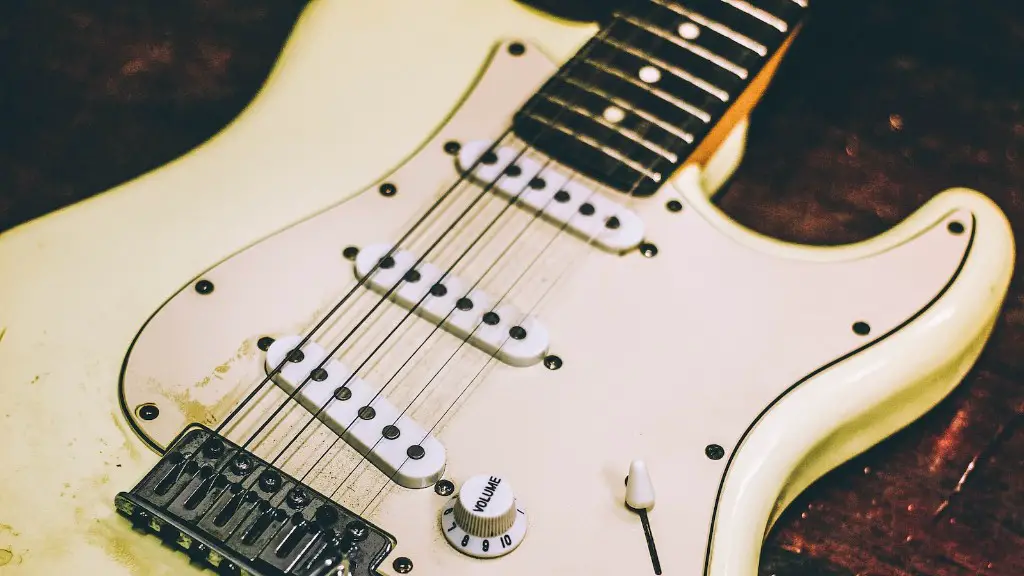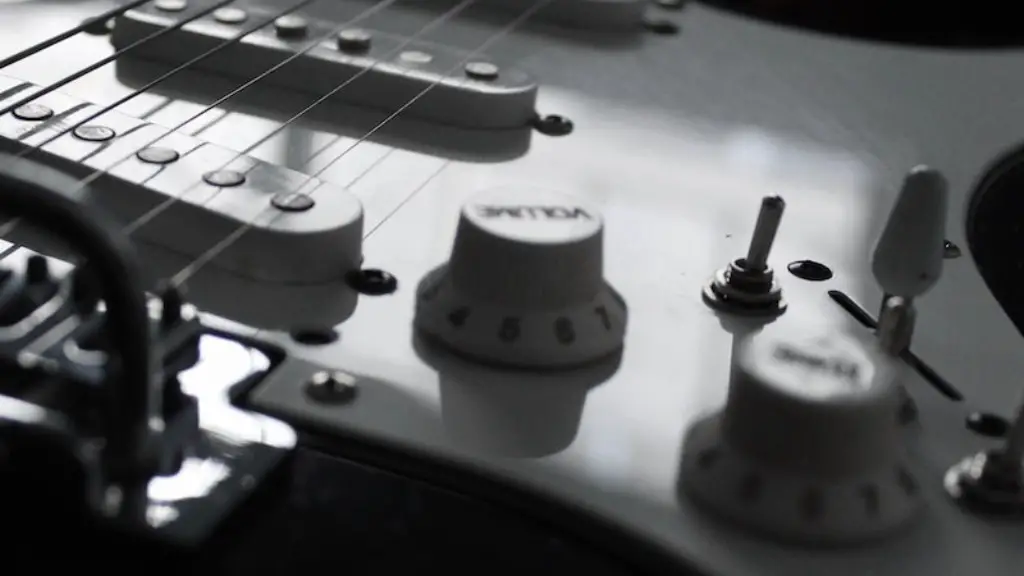The electric guitar and bass are both string instruments, but they are two very different instruments. The electric guitar is a higher-pitched instrument that is used as the lead instrument in most popular music. On the other hand, the electric bass is a lower-pitched instrument that provides the rhythmic backbone of a song. Electric guitars typically have six strings and bass guitars typically have four strings, each tuned to specific notes. Electric guitars generally use lighter gauge strings than bass guitars to allow for easier bending and more expressive playing. Electric guitars have pickups that allow them to be plugged into an amplifier and heard louder than if they were merely acoustic.
Electric basses also have pickups that allow them to be plugged into an amplifier. However, they typically use thicker gauge strings than electric guitars which allows them to produce lower notes. Bassists also often use special effects pedals or amplifiers that can alter their sound in ways that an electric guitar could not achieve.
In conclusion, the electric guitar and bass are very different instruments with unique capabilities and sounds. While both instruments are essential for creating beautiful music, each has its own distinct role within a band or ensemble.
Difference Between Electric Guitar and Bass
Electric guitar and bass both belong to the family of string instruments, but each has its own unique characteristics. The electric guitar has a thinner neck and produces a brighter sound, while the bass has a thicker neck and produces a deeper, fuller sound. The electric guitar typically has six strings, tuned to the notes E-A-D-G-B-E. The bass usually has four strings tuned to E-A-D-G, but can also have five or six strings depending on the model or style of music being played.
When playing an electric guitar, the right hand plucks the strings while the left hand manipulates the frets. On a bass, both hands are used in a similar fashion to pluck or strum the strings, creating notes that are lower than those produced by an electric guitar. Electric guitars are often used as lead instruments in popular music such as rock, pop and jazz; while bass is mostly used as an accompaniment instrument in these genres. The difference in sound between an electric guitar and bass is instantly recognizable.
Electric Guitar and Bass Pitch Range Difference
Electric guitar and bass are both stringed instruments, but they have some distinct differences. One of the main differences between electric guitar and bass is the pitch range. Electric guitars typically have a wider range of pitches than bass guitars. An electric guitar can produce sounds ranging from high-pitched treble notes to low-pitched bass notes, while a bass guitar’s range is usually limited to mid-range tones. Additionally, electric guitars can be used to play lead melodies and solos, while bass guitars are generally used to provide rhythmic or harmonic accompaniment.
Another difference between electric guitar and bass is the type of strings used. Electric guitars usually have thinner strings than bass guitars, which allow for faster playing and a brighter sound. The thicker strings on a bass produce a deeper tone that provides the foundation for other instruments in an ensemble setting. Additionally, electric guitar strings are often made from lighter gauge materials such as steel or nickel-plated steel, while bass strings are usually made from heavier materials such as flatwound or roundwound steel.
Sound Characteristics of Electric Guitar vs. Bass
The electric guitar and bass are two of the most common instruments in modern music and have many similarities, but there are some distinct differences between them. The electric guitar is usually tuned to a higher pitch than the bass, giving it a brighter, more trebly sound. The strings on an electric guitar are usually thinner than those on a bass, which allows for greater precision when playing fast lines and complex rhythms. The sound of an electric guitar is also heavily influenced by the type of amplifier and effects used, allowing for a great deal of sonic versatility.
In contrast, the bass typically has a lower-pitched sound that is less trebly and more mellow. Its strings are thicker than those on an electric guitar, which gives it more sustain and greater capacity for deep notes. Additionally, the range of tones that can be produced by a bass guitar is far more limited than that of an electric guitar due to its lack of effects or amplification. However, this limitation allows for much greater precision when playing intricate lines. Ultimately, both instruments have their own strengths and weaknesses depending on what style of music they are being used for.
Electric Guitar vs Bass
Electric guitar and bass are both popular instruments used in a variety of genres, but they have some major differences. Electric guitar is usually associated with rock and pop music, while bass has its roots in jazz, funk, and blues. Electric guitar generally has a higher pitch than bass; the strings on an electric guitar are usually thinner than those on a bass. The sound of an electric guitar is more trebly and can be distorted with effects such as reverb or delay.
The sound of a bass is lower and fuller due to the thicker strings. Bass is often used to create a rhythmic groove for other instruments to play over. The notes played on a bass can also be manipulated using effects such as wah-wah or fuzz. Bass guitar also has a longer neck than an electric guitar, which allows for greater range when playing chords or melodies.
Necessary Equipment for Playing Electric Guitar or Bass
Playing electric guitar or bass requires a few essential pieces of equipment. The guitar or bass itself is the most important item and is available in various styles. An amplifier is necessary to produce sound from the instrument, and comes in both combo and stack styles. A guitar cable connects the instrument to the amp, while a set of strings provides the necessary tension and tone. An effects pedal gives players more sonic options for their sound, such as distortion and chorus.
Finally, a strap is required to hold the instrument while playing. Electric guitars and basses are similar instruments but differ in many ways, primarily in their range of notes and tuning. Electric guitars usually have six strings tuned to E-A-D-G-B-E, while bass guitars have four strings tuned to E-A-D-G. In addition, basses tend to have a lower range of notes than electric guitars.
Electric Guitar and Bass: Musical Roles
Electric guitar and bass are both essential instruments in the world of music. Though they may look similar, they have distinct roles. Electric guitar is the lead instrument, typically playing the melody and providing a unique sound with its bright tone. On the other hand, bass has a much lower frequency range and provides a rhythmic foundation to the music. It often plays chords, countermelodies, and other complementary parts to help create a full sound.
Electric guitar also has several effects pedals available to customize its sound even further, from distortion to chorus to delay. Bass players can also use effects like fuzz or wah-wah for more creative sounds. Both instruments can be used in any musical genre from rock to jazz to blues and more.
In a band setting, electric guitar usually takes center stage while bass provides a backbone for the rest of the instruments. The two must work together in order for a band’s sound to be complete and balanced. Both are important in creating dynamic performances that captivate an audience’s attention!
The Bottom Line
Electric guitar and bass guitar may look similar, but they are two distinct instruments. Electric guitars are designed to play higher notes and create a twangy sound, while bass guitars are designed for low-frequency notes and to provide a fuller sound. Bass players usually use four strings, while electric guitarists can use either six or seven strings depending on the style of music they want to play. Electric guitars are also typically smaller and lighter than bass guitars. To summarize, electric guitar and bass guitar are both important instruments for rock, metal, and other genres of music, but their designs and uses differ greatly.




